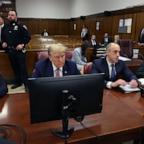Needle Phobia More Common Than Many Believe
While needles can be lifesavers, they strike fear into the hearts of some.
Jan. 2, 2008— -- It's a phobia that filmmakers have loved for years. At a tense moment, someone, usually a man, sees a needle and crumples to the floor.
But it wasn't until 1997 that the mental health community officially recognized needle phobia in the Diagnostic and Statistical Manual of Mental Disorders, thanks largely to an article by physician James Hamilton.
Now, mental health experts estimate that needle phobia, sometimes called belonephobia, may affect up to 10 percent of the population — and it may even be inherited.
While the condition may represent just an occasional inconvenience for some, for others, it can have a dramatic impact on day-to-day life.
"Every time I went to the doctor, it was a shop of horrors," says Keith Lamb, an emergency medical technician in Columbus, Ohio, and long-time needle phobia advocate.
For years, Lamb could not even walk through a dentist's door, due to his needle phobia, which, he says, started with a childhood memory of being separated from his mother to receive a shot. He says he recalls being brought down a long hall, led into a strange room, and told to sit on a tall table.
When Lamb reacted nervously, he says, the doctor intimidated him with the needle.
"If you don't take your shot, we're going to tell your mom, and she is going to whoop you something," Lamb recalls the doctor saying.
While Lamb says his fear of needles continued to plague him in the years following this incident, his phobia truly came to a head when he enrolled in EMT training, and was required to "practice" injections with a partner.
"I can dish it out, but I just can't take it," says Lamb. Although he says the class laughed when he brought up his needle phobia, most health care providers know all too well that needle phobia is no laughing matter.




